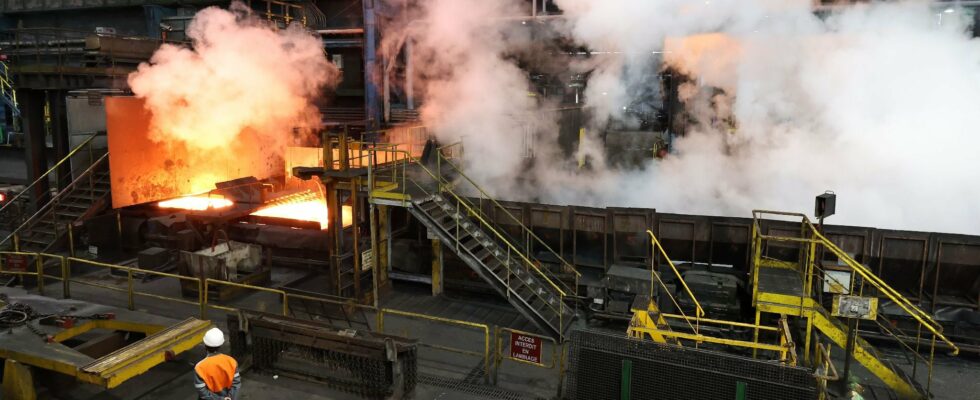To finance its program, the RN has already announced a reduction in the contribution to the European budget and a tax on maritime transport. But it could also eliminate carbon offsetting, a mechanism designed to help companies that consume a lot of energy, set up since 2016. In favor of this elimination, Jean-Philippe Tanguy, in charge of the economic program of the National Rally, estimates that it would bring in 1 billion euros per year. For Nicolas de Warren, president of the Union of Energy User Companies (Uniden), this measure would be “catastrophic”. It would undermine the competitiveness of several dozen industrial sites in France, with cascading consequences on investments and employment.
L’Express: Few people know about this carbon offset system. Why is it so important?
Nicholas de Warren: Because it supports the competitiveness of our industrial sites in a difficult environment. The “electro-intensive” (Editor’s note: companies that use a lot of energy such as steel producers) face very strong international competition. Unlike manufacturers located outside Europe, they are subject to the CO2 quota market, a mechanism aimed at reducing greenhouse gas emissions. These quotas represent a double cost for companies because they also increase the price of electricity on the markets. This effect was measured by RTE, the French electricity network manager, in a study published in 2020.
This context encourages the relocation of production to other regions of the world where the electricity used to produce goods can be highly carbon-intensive. In response to this risk, the European legislator has authorized Member States, which receive revenue from the auctioning of CO2 quotas, to offset part of these additional costs. In France, 300 industrial sites benefit from this for an amount close to one billion euros per year. This is an important element of competitiveness because this aid allows the players who benefit from it to reduce the price of electricity by 3 to 15 euros per megawatt hour.
What would be the cost to the economy of removing this aid?
We estimate it at 5 billion euros per year. In 2022, the industry’s added value represented 313 billion euros. Of this amount, “electro-intensive” weighs around 48 billion. If we consider that the measure cuts the sector by 10% of its added value – a conservative hypothesis – we arrive at an impact of 5 billion. Let’s be clear: if Dunkirk aluminium can no longer count on carbon offsetting, the production sites will close. And it’s the same for the chemical industry.
The RN wants to change the rules for setting electricity prices. Could this mitigate the loss of carbon offsetting?
In the statements that have been made, there is talk of a French electricity price. In this hypothesis, we would leave the European electricity market and return to a rate published by ministerial decree every quarter, as for individuals with the famous regulated sales rate. But this is a real quantum leap and a return on 20 years of building the European market. Beyond the opposition that this decision would generate, we can wonder how France would manage to be both outside and inside the market since it would continue to export its electricity. This would be an unmanageable situation. Furthermore, we must not forget the benefits of what has been built in recent decades: when there is an abundance of electricity in Europe – and this is often the case – we can have extremely low or even negative prices on the wholesale market, which then has repercussions on the retail market.
So how can we explain that European companies are suffering from relatively high electricity prices?
The cost price of the nuclear fleet today is no longer sufficient to make us competitive in the face of competition from the Norwegians, the Quebecers, the Chinese or the Americans. The price of fuel is increasing, and post-Fukushima upgrades have generated costs. At the same time, the fleet is aging. We must therefore carry out what are called major overhauls. The Energy Regulatory Commission (CRE) estimates that the production cost of the French fleet is 60 euros per megawatt hour. It was around 40 euros when the Arenh was established in 2013. Even if we were given access to this rate, our competitors would keep the advantage since they benefit from a cost of between 35 and 52 euros. As things stand, it is carbon offsetting that makes it possible to fill this gap. While possibly waiting for competitive long-term contracts with EDF. But for the moment, we are far from having an agreement on this subject.
What’s blocking?
Negotiations revolve around price. There is also the subject of corporate participation in financing the nuclear future. On this, we say: everything in its time. Let’s first take care of ensuring that current factories do not close, by putting in place long-term contracts. The situation is becoming urgent: funding must be in place by fall 2025 if we want to start electricity deliveries at the beginning of 2026, because there will be no question of extending the Arenh. It is written in the law and the CRE will not authorize it.
.
